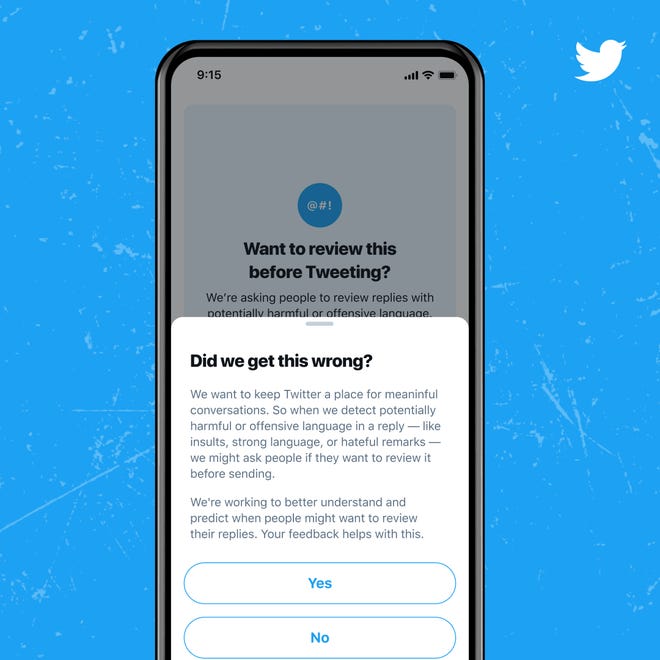
There were lots of big stories in the radio broadcasting industry here in the U.S. last week. But none was bigger than the two days Matt Siegel, morning icon at KISS 108 in Boston, kept us in limbo about whether he had quit his morning post or would calm down and return.
The Matty in the Morning Show has been a juggernaut – for decades – dominating mornings in one of the nation’s most competitive radio markets. And at age 71, Siegel has showed no sign of stopping.
Until last Wednesday, when he did an on-air rant about being reportedly asked to stop joking about Demi Lovato on his show. That culminated in him apparently quitting on the spot after being told what not to talk about. Soon after, cooler heads prevailed – including Siegel’s who quickly realized what he’d be walking away from if he followed through on his threat to hang up his headphones.
The next day, he was back on the air. And while all parties seemingly have moved on, nothing will change the reality that Siegel and KISS 108 probably racked up the most meters tuned into this show than on any other morning in the more than four decades he’s been helming a.m. drive in Boston. Evidently, everyone moved on.
Some of the trades – and a few people I spoke to – assumed it was just another radio stunt. Whether it was or not, the reality is that Siegel’s angry soliloquy generated massive buzz, followed by those aforementioned ratings as thousands tuned in to find out “the rest of the story.”
One thing I’ve learned in my role as consultant is that most people have no clue what’s really happening behind the closed doors of KISS 108 or any radio station going through a personnel issue. Everyone gossips, conjectures, and claims to know the scoop. But only Siegel, his management, and perhaps the iHeartMedia corner office know for sure.
For what it’s worth, I don’t think it was a stunt. It sounded a lot more like lots of pent up emotion that came tumbling out on impulse.
After all, isn’t that what we pay our best personalities to do – impulsively respond and react to what’s in front of them? And to do so with authenticity and entertainment value. It’s improv in an air studio. That’s when the magic happens.
But, it’s not always funny. And unfortunately, that’s also when disaster can strike.
How many personalities have instantly lost their gigs by blurting out something offensive, hurtful, or just stupid – on impulse? One of those untimely blurts that happen in the spur of the moment.
Sadly, it happens all the time, even to talent who are consistent performers. One slip can end it all, and that’s why being a live, on-air performer can be dangerous. And when the drumbeats from advertisers, local civic leaders, the offended parties, and even in some cases, corporate, get loud enough, the inevitable happens.
Matt Siegel’s time in grade and the power of his persona earned him a “Get Out of Jail Free Card” – this time around.
Card” – this time around.
Howard Stern often benefitted from a similarly strong reputation that earned him the ability to withstand tough challenges and sticky situations.
That’s when the apologists say, “Well, you know Howard” or “That’s just Matty being Matty.” Those accumulated cred points can provide insulation and distance from the dumpster fire taking place in the corner office.
But what if there was a way to prevent these incidents altogether? What if technology could somehow anticipate that talent is about to say something disturbing, offensive, license-threatening, or patently stupid?
And what if that same AI could freeze the moment and ask the host about to incinerate his career this timely question:
“You sure you want to say that?”
Seven words that might save a career, a few jobs, a lot of money, and untold heartache.

Do you remember the Steven Spielberg film Minority Report with Tom Cruise? Written by Philip K. Dick (Bladerunner, Total Recall), it’s a story set in the near future where a handful of special people with highly intuitive powers (precogs) have the ability to “see” heated crimes (yes, impulses) before they’re actually committed.
Cruise’s character heads up the “PreCrime Unit” that gets these visions from the precogs minutes (or seconds) before criminal activity goes down so they can nab these would-be bad guys – before they can do heinous things.
Like most sci-fi tales, the system gets corrupted by greedy politicians and corporate bigwigs, leaving it up to Cruise to save society. (Spoiler alert: he does.) The movie was eerily ahead of its time, especially in discussions of the assets and deficits of “predictive policing,” as well as AI connected to our purchases and web browsing (yes, very much like the way search and social work today).
I can sure think of some vanquished radio personalities that could have used pre-cognition to stop them from having a job-ending, career-imploding moment on the air.
Too bad they don’t work in tech because there are now AI versions of precogs that can stop anyone from posting something that could get you shamed, banned, or otherwise treated like a thoughtless moron. Back when Lori Lewis worked for Jacobs Media, she kept a collection of dumb posts that turned out to be job-ending incidents by the famous as well as random folks who did something dumb – often on impulse.
More and more, tech companies are working to eliminate these tragic moments, both for the good of the offensive party as well as the rest of their users.
The dating app, Tinder, is a good example. It’s easy to say something moronic and untoward, especially in the middle of the chase. But a new feature that Axios calls “pre-shaming” alerts losers before they’re about to post something that may be offensive, wrong-headed, or otherwise troublesome for both the user – and the platform.
Tinder’s AI pre-analyzes the content, so before you hit “send,” this helpful pop-up screen appears:

The result? Tinder reports these early warning pop-ups have reduced “potentially offensive language” by 10%.
This technology is like a digital “dump button” that actually goes into action before anything regrettable occurs.
It started on Twitter earlier this month. Maybe that’s because the platform has become famous for “mean Tweets.” While Twitter bans users who violate their standards – like the former Tweeter-in-Chief – this precog-like early warning system is designed to head off nasty behavior before it occurs.
Type something that looks problematic to the platform’s AI engine, and a question appears:
“Want to review this before Tweeting?”
Translation: You sure you want to do this?

The potential wrongdoer gets three choices: edit the tweet, delete the tweet, or throw caution to the social media winds and let it fly.
Is it working?
Twitter told USA Today that after receiving the pre-shaming pop-up, more than a third changed their tweet – or didn’t bother tweeting anything. Similar to Tinder’s numbers, this has resulted in 11% fewer nasty tweets.
Where was this service when Trump was in the White House?
Or when Stern was on K-Rock?
Or when Matty got a little unhinged last week?
Perhaps this is the way we’re headed with social media and web-based communication platforms. Either content is on-demand, or it is increasingly monitored and even policed to screen out objectionable content.
But is this self-censorship a positive use of technology? We are all taught to think before we start yammering. But some of us just don’t seem to have that ability. This may be a case of technology to the rescue for the masses. But for entertainers, is this the mindset we want them to adopt?
technology to the rescue for the masses. But for entertainers, is this the mindset we want them to adopt?
This post is not a rant about media censorship. But it’s not hard to imagine an environment where live radio may become one of the last outlets where anything can happen at any time.
There’s obviously a danger inherent in that equation, but these are the same conditions in which Orson Wells, Don Imus, Rush Limbaugh, and the Greaseman plied their respective crafts.
One of the impacts of voicetracking is that it has virtually eliminated these gaffs, faux pas, and other moments where someone’s words are out there in the ether. But what has been lost in this process?
Has that technology beaten the spontaneity out of broadcast radio, to the point where truly engaging and entertaining moments have become all too few and far between?
While it is dispiriting and even devastating when a personality or team finds their livelihood threatened by an impulsive comment that slipped through on the air, it is also part of a difficult job. These are the rules in which the game is played.
There’s no one asking those “seven clean words”:
You sure you want to say that?
On live radio, anything can happen at any time without warning. Sometimes, its downright brilliant. But at other times, it morphs into one of those on-air death spirals.
Even Tom Cruise and the precogs can’t prevent that from happening.
- What To Do If Your Radio Station Goes Through A Midlife Crisis - April 25, 2025
- A 2020 Lesson?It Could All Be Gone In A Flash - April 24, 2025
- How AI Can Give Radio Personalities More…PERSONALITY - April 23, 2025




Remember in the 70’s
When Dr Johnny Fever
Said “Booger.”
Ah, those were the days, Scott. We didn’t know how lucky we were.
Matty’s on air reversal seems to be lacking a proper apology to his “You work for me” producer who was abused on air and attacked for doing her job. Yelling at a coworker like that live on air is inexcusable, and IHeart should protect employees from this kind of hostile working environment, because if somebody will do that publicly, then god only knows what they get away with behind closed doors.
Right on. Need it be pointed out that any corporate management that tolerates a hostile work environment is operating at risk? And it’s probably all recorded for the lawyers to feast on.
As for the talent–don’t defecate where you eat.
Wow, the blog itself was interesting and thoughtful enough, but both of your comments, Susan and John, added all the more thought to it. Your last line, John, says it all, about not defecating where you eat. Too many air talents were never taught that.
John, another good lesson. Thanks for chiming in.
Susan, I did hear that segment on Matty’s Thursday show, but a number of people mentioned it. Like some of Imus’ antics, this story undoubtedly will have more chapters. Thanks for standing up for her.
My first thought was that with so many years on the air, Matty should have developed a good set of internal filters and known better. I know I very quickly developed those when I was on the air (especially my years in CHR, when faced with split-second timing).
Then I remembered Don Imus.
Like Howard Stern, his entire personality was based on pushing the envelope nearly to the edge, then managing to walk it back while still being outrageous. Then came the infamous “nappy-headed ho” comment … and things were never the same for him again.
Matty’s longevity at KISS 108 is similar to that of Imus at WNNNNNBC, and that gives me a clue as to what may have happened here. Is it possible that, the longer a personality stays in a high-profile timeslot, the more their filters “relax” and let things pass … in the name of staying true to their personality?
Compare Imus in the 1970s to Imus at the end of his career. He was relatively tame with parodies like Rev. Billy Sol Hargis and comments like “Charles McCord will mumble his way through the news” but he obviously felt pressured to keep pushing the boundaries, just to keep from becoming too-predictable and stale. I’m not saying he did so consciously, but it’s obvious when you look at the whole timeline.
I don’t think Matty deliberately pushed those boundaries, but like Imus he had to at least subconsciously feel the pressure to. And like Imus what he said slipped out … and only then did he realize a line had been crossed.
In today’s “everyone is insulted by SOMETHING” attitude, edginess is probably an endangered species. And the filters are going to need frequent cleaning (like the one on my air conditioner, which I pulled out and dusted off yesterday) to remove the content which will lead to more Mattys and Imuses down the road otherwise.
AI can’t do the job. Air talent needs to do it for themselves. It’s their brain and their filter.
KM, this is a great comment, and another in this string that is worthy of consideration. It’s a valid theory, and like Pat Holiday’s comment (below), it makes a good stab at getting inside Matty’s head. But of course, we cannot do that. And as you point out, neither can AI.
Good twist on the Matty story, Fred. The idea of a “pre-crime” warning system for radio jocks is both interesting…and potentially flawed.
Last week one of my comments was censored by Facebook. In the middle of a thread, I referred to a buddy as “big dog,” in a friendly manner. It was meant in the spirit of the definition of someone who is “in charge or at the top of his/her game.” A note from Facebook’s algorithm police force took it as an example of bullying or harassment and removed the entire post.
The thread was entertaining and featured a lot of engagement…until it was taken down. Too bad. As media personalities, we are often judged for content and audience engagement. I lost a strong digital example of that due to a dysfunctional (I think) “pre-crime” censorship mechanism.
So, okay, no more “big dog” references on Facebook. But, how many other seemingly innocuous phrases will be forbidden? And, on the flip side, will Facebook’s algorithms fail to detect other more derogatory words, just like clever vanity license plate lettering aimed to beat the system?
Until “pre-crime” censorship technology is perfected to accurately appraise all angles of our language (including intent), we may be “doomed” to rely on the human element to guide our broadcast future.
Dave, you raise an important concern. And to a great degree, I believe it was a big part of what drove Howard off the terrestrial radio airwaves. It wasn’t just FCC fines – it was is in the not knowing what constituted a violation. When “big dog” crosses the line, we may have more fundamental problems with social media than we think.
What Dave describes happened to me, too, last year when I was commenting on a piece in my local newspaper’s website. I referred to Homo sapiens and the AI blocked my post, even though it had nothing whatever to do with homosexuality, homophobia, etc. I wrote to the webmaster to protest what I saw as an arbitrary, mechanical action. To my pleasant surprise, he apologized and restored the post. Sometimes merely asking for a remedy is enough. (And sometimes you’re yelling into a storm.)
It is strange how these AI engines, obviously not as good as some think they are. Wonder you’d have said homogenized milk. But I guess that’s for another day.
Wow, Fred, I have to say this ranks as one of the most intriguing, thought-provoking blogs I’ve seen in a long time. And to a person, each of the comments following have only added to it. While talking about voice-tracking, which as you said “virtually eliminates” these kinds of incidents, you asked the question, “But what has been lost in this process?” My initial thought to that line was “Must-Hear Radio.” A main reason to tune in to a brilliant air talent is not knowing what exactly is going to be said. But in light of the comments above, I’m not so sure now. I can see this has nearly infinite shades of gray between the extremes of “OK” and “not OK.” All I know is I don’t think I’d want to be an AI filter trying to figure it out.
The older we get, those shades gray show up more frequently. And they’re harder to sort out. Nothing is as simple as it seems, including what was going on in Matty Siegel’s head last week. And he validated what you refer to as “Must Hear Radio.” How much of that is left.
Sort of a different perspective Fred. Being over 70 also, like Matty, with likely only 10-15 years to live or less if actuaries are correct… you just sort of move to a thought process of not giving a $h!# about what used to be a concern. Very little intimidates you. Add in a lot of $$$ that I’m sure Matty has made over the years and it wouldn’t surprise me that Matty sees HIS world and his show a lot differently now then he did 20 years ago. With not many years left on the clock, your tolerance for someone, anyone, messing into your business drops considerably. This all may be as simple as that. Just a guess.
Pat, I think you’re spot on (or damn close). A former boss called it FU money. And in Matty’s case, he has all of that and absolutely nothing left to prove.
Obviously KFI’s Conway Junior & his brain-dead producer missed your blog.
Apparently so.